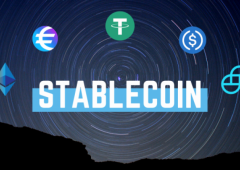Micro-Cap Tech Firm Eyes Crypto Treasury Amid Nasdaq Compliance Struggles
13.05.2025 20:00 2 min. read Alexander Stefanov
Aiming to pivot deeper into the digital asset space, Nevada-based GD Culture Group is preparing to launch a major crypto-focused treasury strategy, backed by a substantial stock sale agreement worth up to $300 million.
The company—best known for its ventures in livestream e-commerce and AI-generated digital personas—revealed that it has entered a financing arrangement with an offshore entity to issue common shares. Funds raised will be used, in large part, to acquire and hold cryptocurrencies, with Bitcoin and the TRUMP token topping the list.
GDC’s leadership described the initiative as a forward-looking step toward embracing decentralized finance principles, while integrating blockchain into its core business model. CEO Xiaojian Wang said the plan aligns with the firm’s ongoing transformation, capitalizing on its digital ecosystem expertise to evolve alongside emerging Web3 infrastructure.
The announcement comes at a pivotal moment for the company. With a market cap of just $34 million and recent challenges meeting Nasdaq’s listing requirements—stemming from low stockholders’ equity—GDC is pursuing this strategy both as a reinvention and as a signal to investors of its long-term ambitions.
Though it remains a micro-cap player, GDC now enters a growing circle of public companies placing digital assets on their balance sheets, a move once considered fringe and now increasingly normalized as blockchain gains traction across mainstream corporate finance.
If successful, the initiative could mark a turning point for the firm—shifting it from a niche AI player to a participant in the broader financial digitalization wave.
-
1
Whales Buy the Dip as Retail Panics: This Week in Crypto
29.06.2025 14:00 3 min. read -
2
History Shows War Panic Selling Hurts Crypto Traders
28.06.2025 18:30 3 min. read -
3
Ripple Faces Legal Setback as Court Rejects Bid to Ease Penalties
26.06.2025 16:54 1 min. read -
4
Coinbase Surges 43% in June, Tops S&P 500 After Regulatory Wins and Partnerships
29.06.2025 21:00 2 min. read -
5
Ripple Has Applied for a National Banking License
03.07.2025 7:00 2 min. read
Bank of America CEO Confirms Stablecoin Plans Are in Motion
Bank of America is actively developing a stablecoin offering, CEO Brian Moynihan revealed during a post-earnings conference call on Wednesday.
PayPal Expands PYUSD to Arbitrum in Latest Blockchain Push
PayPal has expanded its stablecoin, PayPal USD (PYUSD), to the Arbitrum network, marking a key step in its strategy to integrate with faster, more cost-efficient blockchain infrastructure.
Citigroup Explores Launching Stablecoin as Banks Embrace Crypto Shift
Citigroup is evaluating the potential launch of its own U.S. dollar-backed stablecoin, signaling a growing shift in sentiment among traditional financial institutions toward digital assets.
JPMorgan CEO Jamie Dimon Comments Stablecoins
JPMorgan Chase CEO Jamie Dimon remains skeptical of stablecoins—but says ignoring them isn’t an option for the world’s most powerful bank.
-
1
Whales Buy the Dip as Retail Panics: This Week in Crypto
29.06.2025 14:00 3 min. read -
2
History Shows War Panic Selling Hurts Crypto Traders
28.06.2025 18:30 3 min. read -
3
Ripple Faces Legal Setback as Court Rejects Bid to Ease Penalties
26.06.2025 16:54 1 min. read -
4
Coinbase Surges 43% in June, Tops S&P 500 After Regulatory Wins and Partnerships
29.06.2025 21:00 2 min. read -
5
Ripple Has Applied for a National Banking License
03.07.2025 7:00 2 min. read


